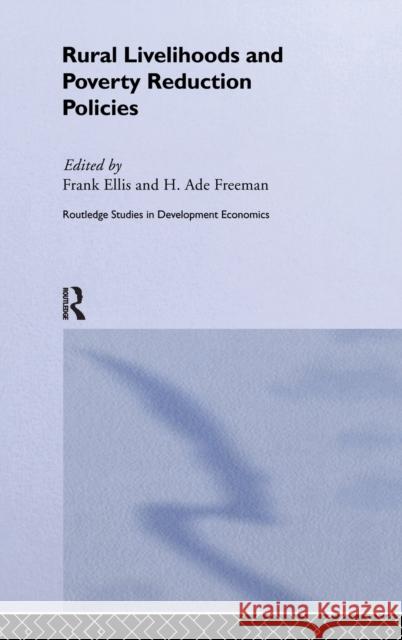Rural Livelihoods and Poverty Reduction Policies » książka
Rural Livelihoods and Poverty Reduction Policies
ISBN-13: 9780415341196 / Angielski / Twarda / 2004 / 440 str.
Rural Livelihoods and Poverty Reduction Policies
ISBN-13: 9780415341196 / Angielski / Twarda / 2004 / 440 str.
(netto: 929,10 VAT: 5%)
Najniższa cena z 30 dni: 906,73
ok. 16-18 dni roboczych.
Darmowa dostawa!
Based on case-study research in four low income sub-Saharan African countries (Uganda, Kenya, Tanzania and Malawi) this book brings together the micro-level realities of gaining a living in rural areas with the macro-level that seek to secure rapid poverty reduction in line with the United Nations Millennium Development Goal of halving global poverty by the year 2015. The starting point is the livelihoods approach to poverty reduction that providesa powerful framework within which micro-level experiences of poverty and vulnerability can be connected to the policy contexts that either block or facilitate people's own efforts to escape from poverty. Initial chapters provide evidence concerning the multiple and diverse character of rural livelihoods. The book then goues on to examine the institutional context of livelihoods, including decentralisation, taxation, markets, land tenure and agricultural research. The natural resource dimensions of agriculture, livestock, fisheries, small-scale irrigation and community-based natural resource management policies are then analysed. micro-level poverty traps to Poverty Reduction Strategy Papers; incorporating rural poverty measurement in such strategies; and tracing macro-micro links. This book exposes the gap that occurs between the rhetoric of poverty reduction strategies in capital cities and the practice of public sector delivery in rural areas. It will be essential reading for advanced students and researchers in the fields of rural development, rural livelihoods, poverty reduction strategies and Sub-Saharan Africa development as well as advisors and practitioners in international organizations.











